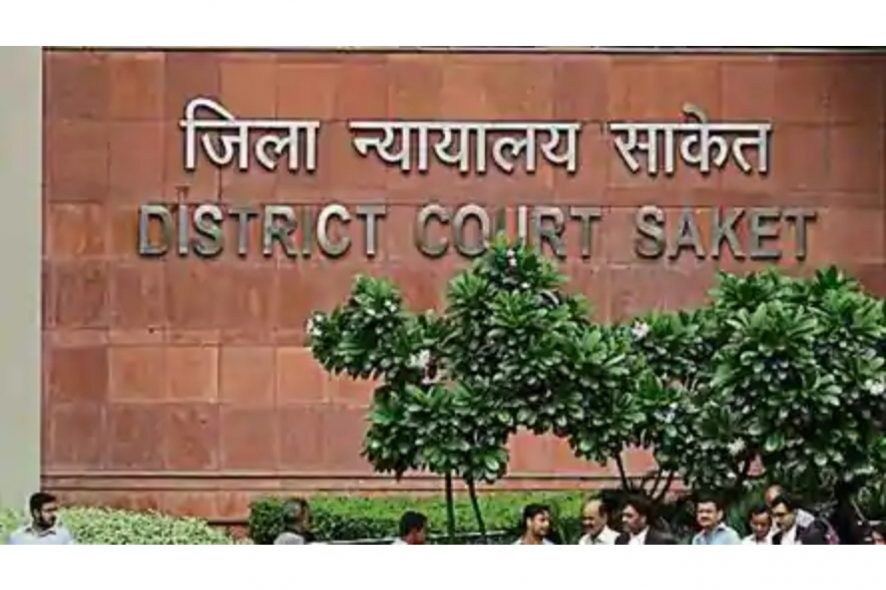Saket Courts, New Delhi: Naresh Kumar Laka, Additional District Judge – 03 decided a matter wherein an employee claimed full back wages from the date he was terminated till the date of his superannuation.
On being aggrieved by the decision of Tis Hazari Court, both parties preferred separate appeals under Section 96 CPC.
Factual Background
Plaintiff was appointed by the defendant as Law Officer (Taxation). The services of the plaintiff were confirmed with the defendant, and it was alleged that the defendant company did not allow the plaintiff to enter into premises of the defendant company and the plaintiff was informed that the defendant company terminated his services with immediate effect.
Analysis, Law and Decision
Court stated that none of the trial court judgments granted any relief of full back wages to the plaintiff.
Main contention was that the plaintiff was not granted full back wages from the date of his termination till the date of his superannuation, and he also claimed other service benefits.
In the instant case, the termination letter provided that the services of the plaintiff were terminated due to business exigencies and administrative reasons and, therefore, it cannot be said that the termination of the plaintiff was the infliction of punishment.
Retrenchment
Bench stated that the termination by way of retrenchment can be for any reason whatsoever.
Apart from the issue of definition, what is critical is that an employer must carry out retrenchment (other than dismissal on grounds of misconduct), as per the requirements of Section 25F of the ID Act. Section 25F provides for the employer to fulfill certain conditions before retrenching any employee.
Trial Court had noted that notice of termination was not served upon the plaintiff, therefore, plaintiff was not retrenched properly as per the procedure provided in the ID Act. Court added that although the ID Act does not apply to the plaintiff, yet an analogy can be drawn about the course of action to be followed in that eventuality.
Bench expressed that if the case of the plaintiff is presumed to be covered within the ambit of ID Act, in that case the plaintiff will not be entitled to automatic reinstatement or full back wages.
How will the compensation of plaintiff be assessed?
In view of absence of applicability of any special statute, the compensation can be assessed as per the contract of a master and servant read with Sections 73 and 74 of the Indian Contract Act, 1872.
It was noted that, the appointment letter of the plaintiff provided a clause of severing of the contract by either side upon serving one month’s notice or on payment of one month’s salary in lieu of notice period.
Plaintiff’s counsel had contended that the defendant had admitted liability of Rs 5,46,737 and the said admission was upheld by ADJ as well as the Delhi High Court. Defendant’s counsel stated that the said amount was shown as a contingent liability.
The word “Contingent” shows that there was no admission of the liability of the defendant and the said amount of Rs 5,46,737 was shown as an estimated or guessed or contingent liability which may or may not arise. Further, the said amount of Rs 5,46,737 could not be said to be estimated towards making payment of the plaintiff only and rather it would include the expenses for litigation, court fees, advocate’s fees etc. for contesting the claim of the plaintiff in different courts of law.
Court held that mere mentioning of the said amount before a third party/agency cannot be treated as an admission against the defendant. Hence, Trial Court treating the said amount as an admission is illegal and not as per the established principles of law of evidence.
Bench decided that the plaintiff was entitled only to one month’s salary as per the original employment contract for one month’s notice period besides the other service dues which had been decided by the trial court.
With regard to plaintiff claim of DA, HRS, Bonus, LTA and Gratuity, Court stated that when it was already held that plaintiff was not entitled or full back wages, he cannot be said to be entitled to the said reliefs. Further, HRA, LTA are permissible only when a person is into service which is not the case in the present matter. The Bonus and Gratuity can be claimed from the competent authority as prescribed in the Bonus Act and Gratuity Act as per law. The amount already received by the plaintiff is deductible and excess, if any, to be refunded to the defendant within 30 days.
In view of the above discussion, appeal were disposed of. [Ashok Gupta v. Modi Rubber Limited, RCA No. 25 of 2020, decided on 17-11-2021]







